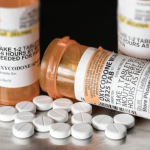I knew I shouldn’t look. I was driving 60 miles per hour, heading north on I-95, trying to get to the George Washington Bridge before dusk. It takes a certain fatalism to drive through New York City if you are not a native. Ninety percent of the drivers sharing the road with you know exactly…








